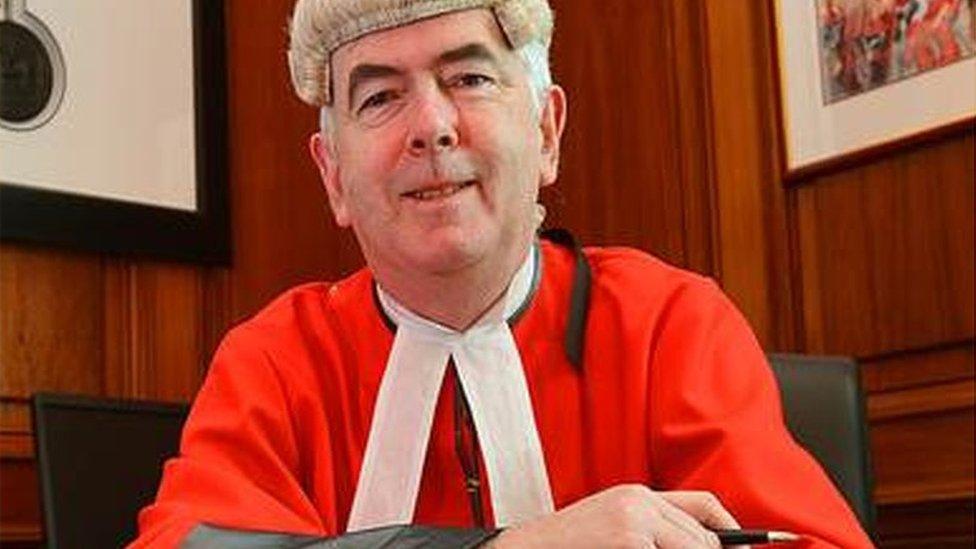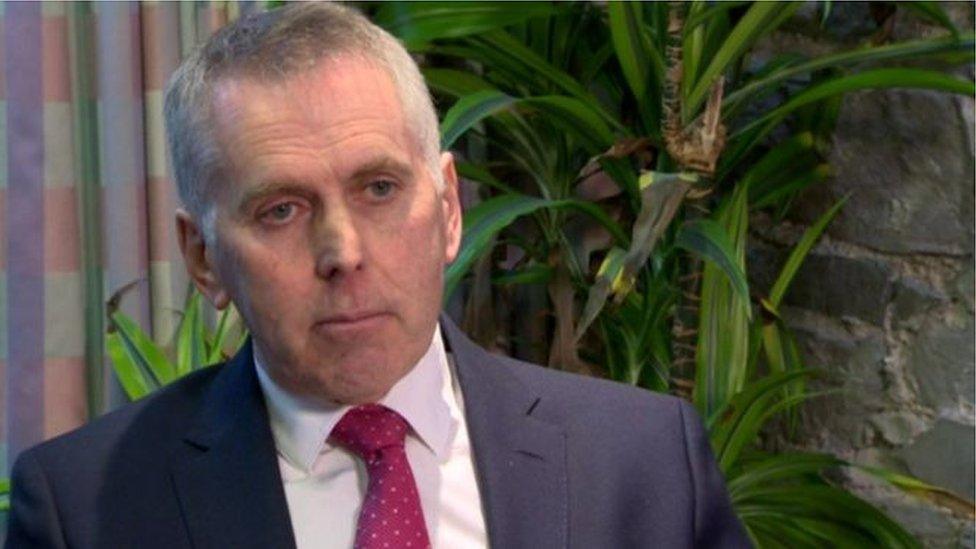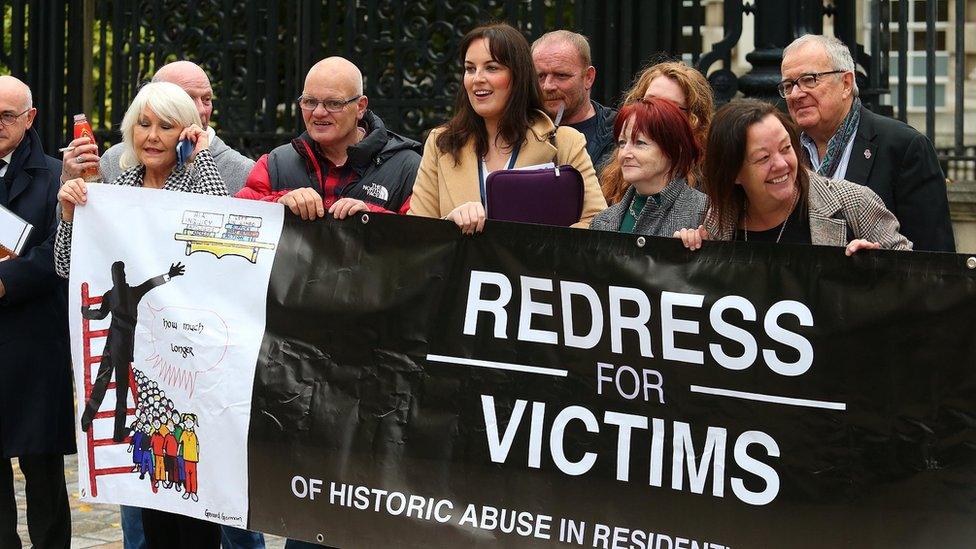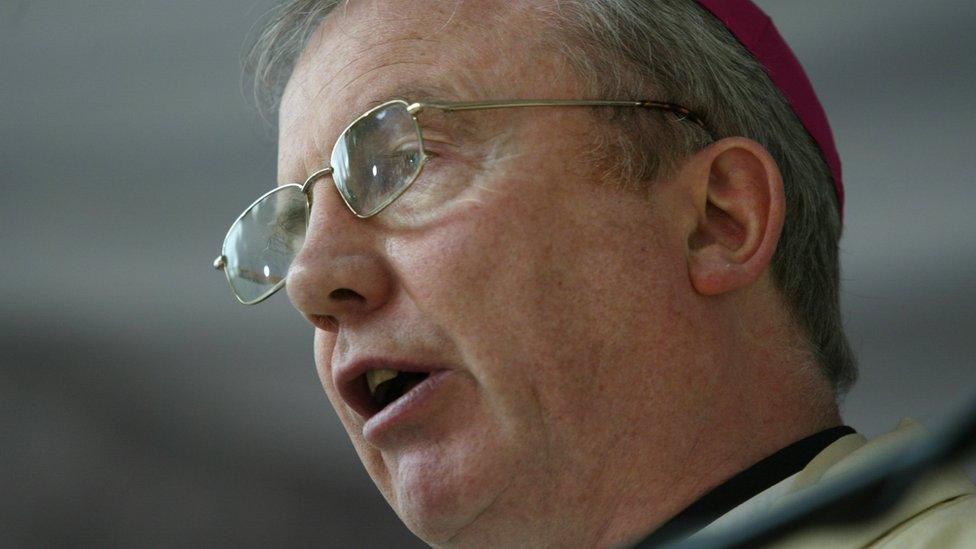Adrian Colton: Judge appointed to lead abuse redress board
- Published

Mr Justice Colton was first appointed as a High Court Judge in September 2015
Adrian Colton has been named the president of the board to oversee the compensation scheme for victims of historical institutional abuse.
The Lord Chief Justice Sir Declan Morgan announced the decision on Friday.
Mr Justice Colton was appointed as a High Court Judge in September 2015.
The civil service has said it cannot guarantee when HIA victims will receive their first payments.
But the redress board will be responsible for receiving and processing applications, as well as ordering the payments to victims.
The board is being set up after MPs passed legislation at Westminster last month, to implement a bill to allow compensation to be released.
Mr Justice Colton said he was honoured to be asked to be president of the board, on which he will be joined by two other members of the judiciary, as well as some non-judicial members.

David Sterling met with victims and survivors of historical and institutional abuse at Stormont on Monday afternoon
"The many victims of historical institutional abuse in Northern Ireland deserve redress and I will do everything I can to ensure they receive compensation as quickly as possible," said Mr Justice Colton.
The Executive Office has indicated to victims' and survivors' groups that, before Christmas, it will give a timeline for the remaining stages of implementation.
Church 'open to conversations'
In February 2016, the Lord Chief Justice appointed Mr Justice Colton as Presiding Coroner for Northern Ireland, giving him responsibility for oversight of the legacy inquests concerning Troubles killings in Northern Ireland.

Appeal court judges in November ruled that the Stormont's Executive Office had the power to compensate institutional abuse victims in Northern Ireland
The head of the civil service, David Sterling, described the appointment of the HIA redress board president as an "important step".
"Earlier this week I gave my commitment to victims and survivors that we would be working closely with our partners to enable delivery and I would like to thank Sir Declan Morgan and Mr Justice Colton for their swift provision of support," he said.
On Thursday, the Catholic Bishop of Derry said the Church was "open to conversations" about compensation payments for victims of historical institutional abuse.
Bishop Donal McKeown said the Church was open to talks, but the state should begin talks with all parties involved.
He was responding to comments made by Mr Sterling, who said on Monday that the civil service was "pursuing" state-led institutions and Churches for contributions to offset the cost of the payments.

Dr McKeown stressed that there were number of institutions involved, who are collectively responsible in different ways
Asking Westminster to help the civil service fund payments was also an option, he added.
What was the Historical Institutional Abuse Inquiry?
The Historical Institutional Abuse Inquiry (HIA) studied allegations of abuse in 22 homes and other residential institutions between 1922 to 1995.
These were facilities run by the state, local authorities, the Catholic Church, the Church of Ireland and the children's charity Barnardo's.
The largest number of complaints related to four Catholic-run homes.
Responding to Mr Sterling's comments, Bishop McKeown stressed that there were number of institutions involved, who were responsible in different ways.
"There were voluntary organisations, there were Churches involved and obviously, Judge Harte was very clear, the state with a lack of supervision was involved," he said.
Bishop McKeown also said the the majority of institutions involved in HIA were not Catholic.
He stated that the amount given in compensation would also need to be finalised.
"We have to have a dialogue, are we talking about 5% or are you talking about 50%?
"For every £10m that goes to victims or survivors that's £10m not available for some other things," added the bishop.